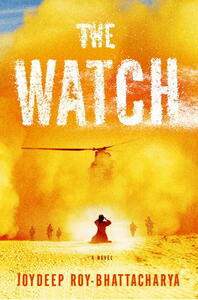Take a photo of a barcode or cover
The first 30 pages rocked, the next 30 were irritating, and so it went for the remainder of the book. A lot of it was due to the lack of character development and switching times/perspectives. It was okay but I wouldn't necessarily recommend it.
The first chapter was brilliant. I didn't believe a word that followed it.
This book could have been good, but it's not. It has an interesting premise and a creative structure, but it just doesn't deliver. The author's attempts to tell a single story from a range of different perspectives starts out well and then flounders around the middle of the book. While some voices work well, others are so unconvincing as to make you cringe. Let me spare you a couple of hours of your life and give you all the key insights - the war in Afghanistan is complex. There are innocent Afghanis whose lives are being torn apart and those who are hell bent on killing Americans. The Taliban are bad. Americans on the whole are good, although some higher up are disorganised. Soldiers join the army for a range of reasons and many are traumatised by what they have seen and are being asked to do. Death messes with the heads of everyone. Yes, that makes it all sound trite, and I think in part that what annoys me about this book, is that it labours so hard to get across those few points that they end up feeling shallow. I respect the author's attempts to bring a human face to a war that is often reduced to soundbites, but it just doesn't quite achieve what it sets out to do.
The first chapter is excellent.. however, the story unravels after that as the author switches back and forth between the different points of view of the US soldiers. This novel wouldve been more compelling if it was condensed into a short story.
Sadly, I have to admit reading this novel directly watching an episode of Drop Dead Diva. The turnaround was brutal and not recommended.
When I finished the last page I wanted to turn back to the beginning and start over, which I rarely find myself. Told from several POVs my mind was changed back and forth. This author truly wrote an exceptional read. And don't get me started on the hardcover artwork. Simply amazing.
The author writes very well, and the first chapter was absorbing and deeply affecting.
But then it switched points of view, and after the book sat around for six weeks waiting for me to pick it up again, back to the public library it went.
If it had been set up so that the points of view (crippled and angry Afghani woman on one side, American soldiers on the other) would swap back and forth through the book - then I might've stayed interested. But the switch was permanent - I checked.
I liked the Antigone parallel in theory. I particularly dislike the affectation of not using quotation marks for dialogue. It worked for me during the first chapter, because the point of view character is uneducated and relatively unsophisticated and deeply emotional; continuing it with the soldiers' point of view did not work for me at all.
I also didn't like that the book was going spend just one chapter on "Antigone's" point of view and then the whole rest of a full-length novel on the men arguing about what to do. We're talking 304 hardcover pages here.
I get that Roy-Bhattacharya intended to explore the impact of the moral dilemma on the soldiers (as Sophocles explored its impact on Creon). I even get that the swapping between the woman's point of view and the soldiers' might have diluted the former's - though I think he could've handled it well enough to avoid that. It just turns out that the author didn't write the book I wanted to read: I wanted more of her point of view, more interaction.
Antigone was an active participant in her story, as Sophocles told it. In this version, though, she sits outside the fort the whole time, able to communicate only through an interpreter. Then she disappears from direct involvement in the story. Is everything propelled by her presence? Sure. Does she really get to be anything but a symbol, a cipher, a threat? No. She gets a brief period of real personhood (which only she and the reader really perceive) and then - poof.
I'm not interested. I wanted to see a good, solid argument and interactions between actual characters, not between a set of (male) characters and a (female) cipher. Very disappointing.
But then it switched points of view, and after the book sat around for six weeks waiting for me to pick it up again, back to the public library it went.
If it had been set up so that the points of view (crippled and angry Afghani woman on one side, American soldiers on the other) would swap back and forth through the book - then I might've stayed interested. But the switch was permanent - I checked.
I liked the Antigone parallel in theory. I particularly dislike the affectation of not using quotation marks for dialogue. It worked for me during the first chapter, because the point of view character is uneducated and relatively unsophisticated and deeply emotional; continuing it with the soldiers' point of view did not work for me at all.
I also didn't like that the book was going spend just one chapter on "Antigone's" point of view and then the whole rest of a full-length novel on the men arguing about what to do. We're talking 304 hardcover pages here.
I get that Roy-Bhattacharya intended to explore the impact of the moral dilemma on the soldiers (as Sophocles explored its impact on Creon). I even get that the swapping between the woman's point of view and the soldiers' might have diluted the former's - though I think he could've handled it well enough to avoid that. It just turns out that the author didn't write the book I wanted to read: I wanted more of her point of view, more interaction.
Antigone was an active participant in her story, as Sophocles told it. In this version, though, she sits outside the fort the whole time, able to communicate only through an interpreter. Then she disappears from direct involvement in the story. Is everything propelled by her presence? Sure. Does she really get to be anything but a symbol, a cipher, a threat? No. She gets a brief period of real personhood (which only she and the reader really perceive) and then - poof.
I'm not interested. I wanted to see a good, solid argument and interactions between actual characters, not between a set of (male) characters and a (female) cipher. Very disappointing.
http://www.thebookbag.co.uk/reviews/index.php?title=The_Watch_by_Joydeep_Roy-Bhattacharya




